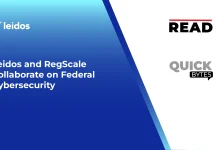The American National Standards Institute (ANSI) released for public review and comment a draft of the Roadmap of Standards and Codes for Electric Vehicles at Scale developed by the Institute’s Electric Vehicles Standards Panel (EVSP). The roadmap identifies key safety, performance, and interoperability issues; notes relevant published and in-development standards; and makes recommendations to address gaps in codes and standards. This includes recommending pre-standardization research and development (R&D) where needed. It also proposes prioritized timeframes for when standardization work should occur and standards developing organizations (SDOs) or others that may be able to lead such work. Working groups have been developing the draft roadmap since a kickoff event held in June 2022.
The request for comment specifically invites comments that represent critical revisions and needed clarifications on the roadmap content. Comments on the draft roadmap may be submitted to evsp@ansi.org by close of business on Monday, May 1, 2023. Use of the comment form (see below) is required to better manage and review comments. The EVSP working groups are currently on hiatus and will reconvene in May to address the comments submitted and finalize the document for publication by the end of June 2023. While all comments are welcome, the EVSP reserves the right to hold disposition of comments in reserve for a future iteration of the document if they cannot be addressed within the time available. This might include, for example, comments on the document’s organization, or issues not addressed.
Also Read: HistoSonics Announces First Ever Kidney Tumor Treatment Using Histotripsy English
Building on ANSI EVSP roadmaps developed in the 2011-14 timeframe, the draft document seeks to describe the current and desired future standardization landscape that will support and facilitate EVs at scale. The roadmap’s primary focus is on light duty, on-road plug-in electric vehicles (PEVs) that are recharged via a connection to the electrical grid, as well as the supporting charging infrastructure needed to power them. Medium and heavy-duty EVs are also covered. Topics covered include standards to address high power DC charging, storage (i.e., microgrid, distributed energy resource management systems) integrated with DC charging, vehicle grid integration, high power scalable/interoperable wireless charging, and vehicle-oriented systems. The broad target audience includes vehicle manufacturers, entities that will be installing and operating charging infrastructure; SDOs; U.S. federal, state, and municipal government agencies; electric utilities; and others.
To advance the Biden Administration’s goal for a clean energy future, the U.S. Department of Energy (DOE) Office of Energy Efficiency & Renewable Energy (EERE) Vehicle Technologies Office (VTO) issued a June 2021 lab call funding opportunity announcement. The lab call included a pillar on codes and standards with the goal to “identify and address challenges and barriers to the integration of EVs@Scale charging with the grid created by uncoordinated development of codes and standards and the rapid advances in vehicle and charging technologies.” An EVs@Scale lab consortium was formed in response with Argonne National Laboratory (ANL) as the lead lab for the codes and standards pillar supported by other national labs. The consortium committed to develop a 2022 roadmap like earlier roadmaps developed by the ANSI EVSP.
The EVs@Scale effort supports funding initiatives associated with deploying a nationwide EV charging infrastructure, including the National Electric Vehicle Infrastructure (NEVI) Formula Program, which provides $5 billion in Federal money to that end. As part of the Bipartisan Infrastructure Law, the Federal Highway Administration was directed to release a set of minimum standards and requirements for the implementation of the NEVI program. The NEVI Final Rule was issued on February 28, 2023, and appropriate references are included in the EVSP roadmap.
SOURCE: PR Newswire




